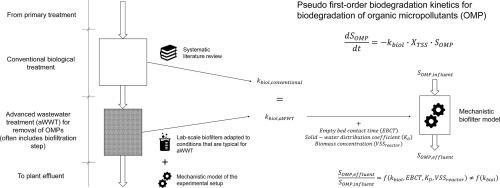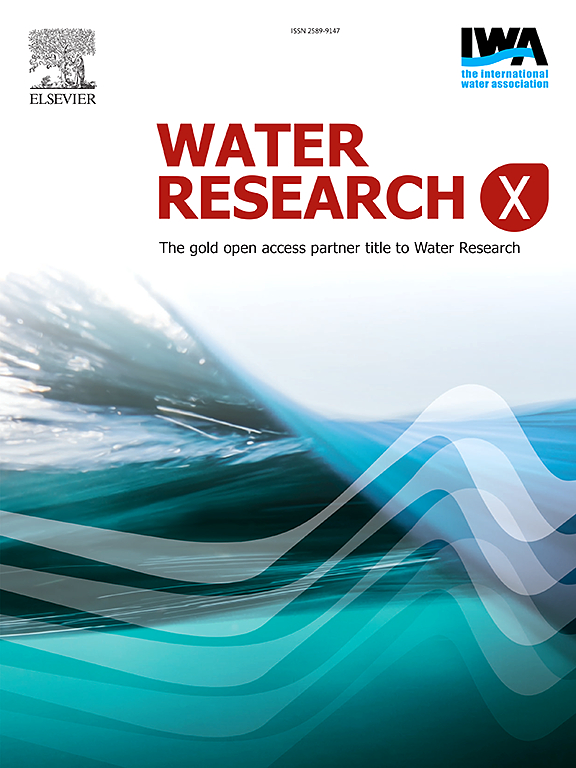Biodegradation kinetics of organic micropollutants in biofilters for advanced wastewater treatment – Impact of operational conditions and biomass origin on removal
Abstract
Biofiltration processes are often part of advanced wastewater treatment (aWWT) technologies for the removal of organic micropollutants (OMP) from conventional wastewater treatment plant (WWTP) effluents. Although biological effects are not always the main focus of these technologies (e.g. filtration through granular activated carbon), they have been shown to contribute significantly to total OMP removal. While OMP biodegradation kinetics in conventional biological wastewater treatment are well researched, no systematic comparison to biomass from aWWT is available. This biomass faces different growth conditions and higher OMP concentrations relative to the background organic matter. Adaptation to these conditions could be possible and could lead to faster OMP biodegradation kinetics, which would show in a larger pseudo first-order biodegradation kinetic constant kbiol. In this work, kbiol values for biomass obtained from aWWT biofilters were determined by evaluating OMP removals measured in lab-scale biofilters using a mechanistic model of the experimental setup. A comparison to kbiol values from literature for conventional wastewater treatment (with nutrient removal) revealed similar OMP biodegradation kinetics without any advantages of biomass from aWWT. A conceptual evaluation of influencing factors on OMP removal in biofilters showed that operational parameters (such as the biomass concentration or the empty bed contact time) and the affinity of OMPs to adsorb on biomass have a significant additional effect on biological OMP removal. Therefore, kbiol values alone are not sufficient to estimate biological OMP removal in biofilters and further information about the system is required.


 求助内容:
求助内容: 应助结果提醒方式:
应助结果提醒方式:


